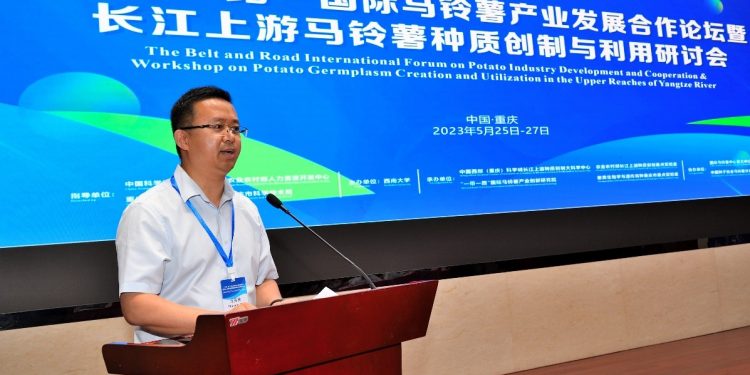#PotatoCultivation #GovernmentSupport #FoodSecurity #AgriculturePolicies #ResearchandDevelopment #InfrastructureDevelopment #MarketSupport #SustainableFarming #FoodSustainability #RuralInfrastructure
Potatoes are a vital crop for food security and agricultural sustainability. Recognizing their importance, the Chinese government has implemented supportive policies and initiatives to promote potato cultivation. This article explores the government’s efforts to increase potato production, enhance farming practices, ensure food security, invest in research and development, develop infrastructure, and provide market support.
Government Policies for Increasing Potato Production: The Chinese government has implemented several policies to boost potato production. One such policy is the provision of subsidies to farmers for purchasing high-quality seeds and modern machinery. By subsidizing these inputs, the government aims to encourage farmers to adopt advanced techniques, resulting in increased yields and improved productivity. Additionally, the government has established demonstration farms and training programs to educate farmers about best practices in potato cultivation, including pest and disease management, irrigation methods, and soil fertility management.
Improving Farming Practices: To enhance farming practices, the government has emphasized the importance of sustainable agriculture and the use of environmentally friendly techniques. It has encouraged integrated pest management (IPM) approaches, promoting the use of biological control agents and reducing reliance on chemical pesticides. Furthermore, the government has supported the adoption of precision agriculture technologies, such as remote sensing and GIS mapping, to optimize resource utilization, minimize wastage, and increase overall efficiency in potato farming.
Ensuring Food Security: Food security is a top priority for the Chinese government. To ensure a stable potato supply, the government has implemented measures to prevent production fluctuations and reduce post-harvest losses. These include the development of storage and processing facilities, cold chain infrastructure, and improved transportation networks. By investing in these areas, the government aims to minimize food waste and improve the availability of potatoes throughout the year.
Investments in Research and Development: Recognizing the importance of innovation in agriculture, the Chinese government has made significant investments in research and development (R&D) related to potato cultivation. These investments focus on developing new potato varieties with improved traits, such as disease resistance, drought tolerance, and higher nutritional value. The government also supports research on sustainable farming practices, soil health management, and the development of efficient irrigation systems. By promoting R&D, the government aims to provide farmers with access to cutting-edge technologies and knowledge to enhance potato production.
Infrastructure Development: Infrastructure plays a crucial role in facilitating the growth of the potato industry. The Chinese government has prioritized the development of rural infrastructure, including irrigation systems, rural roads, and electricity supply. These investments improve farmers’ access to water resources, facilitate the transportation of produce to markets, and provide reliable power supply for storage and processing facilities. By strengthening infrastructure, the government aims to create a favorable environment for potato cultivation and ensure the efficient movement of goods across the country.
Market Support: To promote the marketing and distribution of potatoes, the government has implemented various market support mechanisms. These include the establishment of wholesale markets, farmer cooperatives, and e-commerce platforms dedicated to agricultural products. The government also provides financial support for the construction of storage and processing facilities, helping farmers add value to their produce and enter higher-value market segments. Furthermore, the government facilitates domestic and international trade by negotiating trade agreements and participating in trade promotion activities, opening up new avenues for potato exports.
The Chinese government’s support and policies have played a pivotal role in promoting potato cultivation. Through subsidies, training programs, and infrastructure development, the government has encouraged farmers to adopt advanced farming practices, increase production, and ensure food security. Investments in research and development have further facilitated innovation in potato cultivation. By strengthening market support mechanisms, the government has enhanced the marketing and distribution of potatoes, benefiting both farmers and consumers. Continued government support and collaboration with stakeholders will be crucial to further develop the potato industry and sustain its growth in the future.







